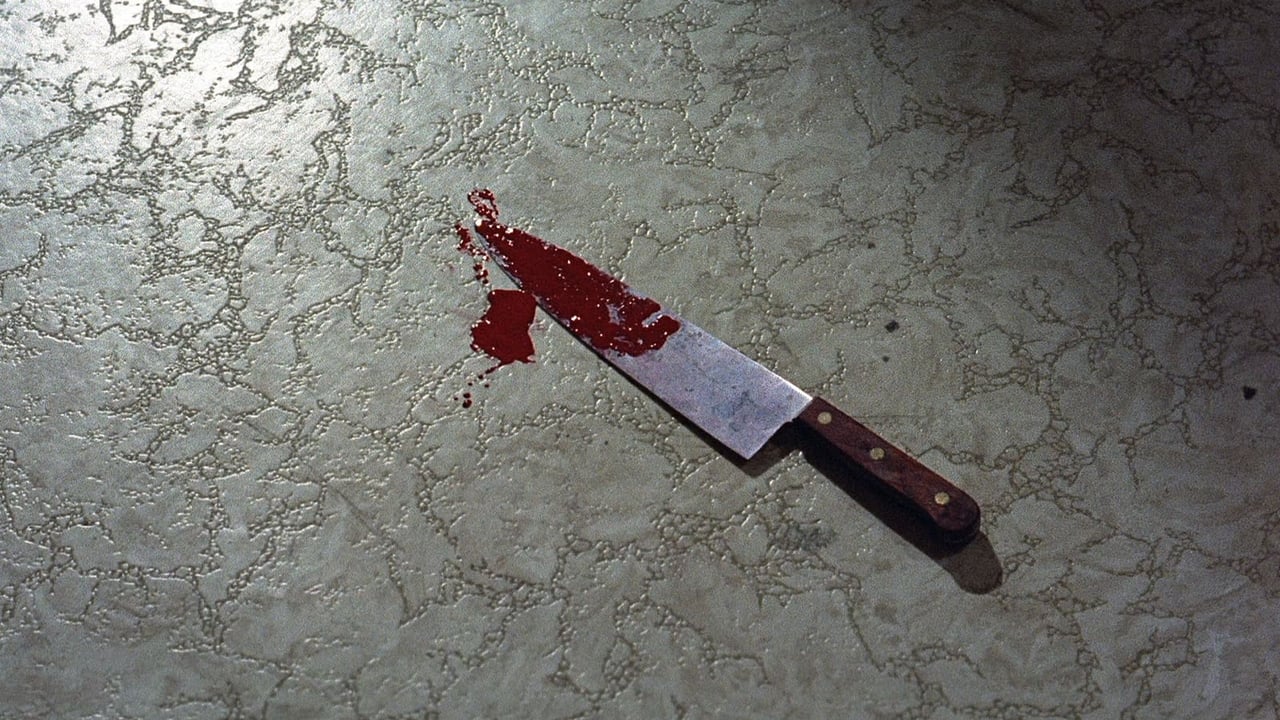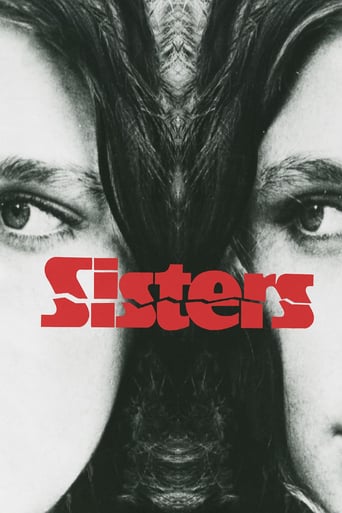

Abrasive feminist reporter Grace Collier (well played to the annoying hilt by Jennifer Salt) witness a murder committed by model Danielle (a bravura performance by Margot Kidder) through her apartment window. When the police don't believe her, Collier hires low-rent private detective Joseph Larch (the always excellent Charles Durning) to get to the bottom of things. From its clever opening that puts an ingenious spin on the whole concept of voyeurism to the boldly ambiguous "it's not quite over" ending that refuses to tie everything up all nice and neat in a bow, director/co-writer Brian De Palma has a grand time slyly subverting basic thriller conventions while still delivering the requisite exciting set pieces: The brutal murder of decent guy Phillip Woode (a likeable portrayal by Lisle Wilson) is downright painful to watch while a ripsnorting cinematic black and white flashback sequence proves to be both surreal and nightmarish in equal measure. William Finley contributes a splendidly creepy turn as sinister psychiatrist Dr. Emil Breton. Dolph Sweet also does well as gruff and skeptical detective Kelly. Gregory Sandor's polished cinematography makes expert use of split screen and boasts a few sinuous tracking shots. Bernard Herrmann's shivery and spirited score hits the stirring spot. Essential viewing for De Palma fans.
... View MoreI have liked this film since I first saw it back in the 70s when I seem to recall it was much dismissed. I felt there was something different about it. Maybe not as clinically professional as some films and more concerned with the action than the actors. There also seemed to be unusually seedy aspect to the goings on. Later, of course, I discovered Italian exploitation and gialli in particular. This is the territory De Palma is working in even if the references to Hitchcock are undeniable. Interestingly enough I recall Hitchcock being asked if the violence in Frenzy was really necessary and he said that continental films had much more sex and violence and if he had been allowed to he would have made his films more like that. So, De Palma does get away with it and in some style. The story races along with a pretty Margot Kidder central at first, before we get tabloid type flashes as to the past evidence of conjoined twins and the whole thing gets very creepy. The use of split screens is exciting, indeed De Palma seems to use anything at his disposal, including the great score, to give us that thrilling experience with just a little feeling of dread.
... View MoreI admit that I dread giving this only a 6/10 as this is by no means a bad movie, I actually quite enjoyed it. Obviously if you have seen Psycho or a movie using a similar theme you will be able to figure out the truth behind Danielle and her twin sister Dominique before the twist or mystery revelation. I figured it out early and for my liking way too soon. Still the movie remained interesting. The characters were certainly well played and thought out. I was impressed by the split-screen sequences, something you don't see that often mostly when people telephone but in this it was different actions and made more interesting. Also the flashbacks in black and white which looked like a documentary were done really well. Weak points for me were the really fake blood on the victims plus how the story itself was executed wasn't that interesting. However I don't know how else they should have done it. The role of the detective was in my opinion not really a plus to the movie. The real creep for me was the doctor.
... View MoreWriter/director Brian De Palma is most acclaimed for his - admittedly brilliant - epic gangster movies from the 80's and 90's ("Scarface", "The Untouchables", "Carlito's Way"), but personally I'm a much bigger fan of his imaginative, raw and often very flamboyant horror outings of the 1970's. "Carrie" is an obvious favorite, but so are the "The Fury", "Murder à la Mod" and the oddly stupendous but still criminally underrated "Phantom of the Paradise". And also "Sisters" is a very worthwhile and entertaining motion picture from the period De Palma was still a struggling young filmmaker. Particularly the first half hour is a crude and shocking psycho-thriller that once again showcases the director's blatant obsession of Alfred Hitchcock, while the rest of the film is more of an experimental paranoia/medical horror (although Hitchcock's influence is clearly present here as well). The Canadian actress/model Danielle, on the run for her stalking ex-husband, meets the gentle Philip during a crazy TV-show entitled "Peeping Tom" and invites him to her Staten Island apartment for a passionate night. The next morning, however, Philip discovers that Danielle has a twin sister named Dominique, and she isn't nearly as hospitable or charming. From her apartment across the street, the ambitious journalist Grace Collier witnesses how Philip is brutally murdered, but by the time the police arrives, all the evidence has disappeared and they don't believe her story. Grace starts her own private investigation, which unravels disturbing secrets about Danielle, Dominique and ex-husband Emil. Since the background of the twin sisters is rather predictable, even if you haven't read or heard anything about the plot from beforehand, the whole second and final act of "Sisters" isn't too suspenseful or surprising. De Palma attempts to compensate for this by inserting grotesque surgical horror, black humor and an ambiguous open ending. Speaking in terms of style, our director effectively uses cool split-screen and excessive gross-out gore during the murder sequence and flashbacks. De Palma could also rely on a downright terrific score by Bernard Herrmann and stellar performances from Margot Kidder, Jennifer Salt and particularly William Finley as eerie husband/surgeon. His character reminded me of a sinister Nazi doctor or even a cold war spy, and his hypnosis sequence is genuinely uncanny.
... View More